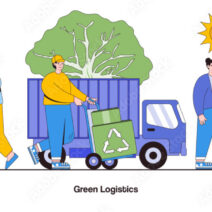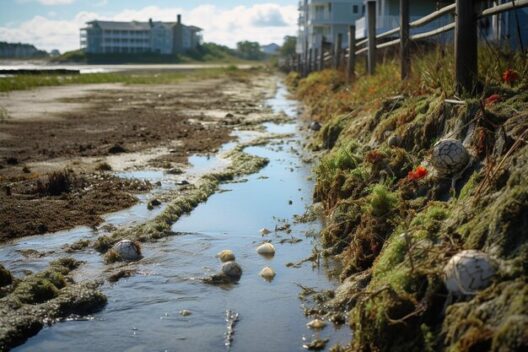Energy conservation is a pressing topic in the discourse surrounding climate change and global warming. While many people often consider energy conservation as synonymous with simply switching to energy-efficient bulbs, the reality encompasses a much broader spectrum of practices and innovations. This article seeks to unravel the myriad layers of energy conservation, its pivotal role in mitigating global warming, and the promising shifts in perspective that could pave the way for a sustainable future.
At its core, energy conservation refers to the deliberate and conscious reduction of energy consumption. This can be accomplished through various means, including optimizing energy use in residential, commercial, and industrial sectors. Understanding the importance of energy conservation begins with grasping the consequences of excessive energy use, which largely stems from fossil fuel combustion. This process releases greenhouse gases—chief among them carbon dioxide—into the atmosphere, thereby exacerbating the greenhouse effect and contributing to global warming.
As we explore the intricacies of energy conservation, one must first recognize the profound concept of energy efficiency. Energy-efficient technologies, appliances, and systems provide the same level of service as their conventional counterparts but require significantly less energy. This not only reduces carbon emissions but also diminishes household and business energy expenses. By adopting energy-efficient technologies, such as high-efficiency heating and cooling systems, advanced insulation materials, and programmable thermostats, the energy consumption landscape can drastically change.
However, energy conservation extends beyond technology; behavioral and lifestyle changes play an equally vital role. Simple actions such as turning off lights when not in use, unplugging devices, and minimizing water usage can cumulatively lead to a substantial reduction in energy demand. Behavioral psychology tells us that small changes, when repeated consistently, can lead to monumental shifts. Thus, fostering a culture of conservation cultivates an environment where energy efficiency becomes not just a choice, but a way of life.
Moreover, education and awareness are pivotal in propelling this cultural shift. Communities that are informed about the impacts of their energy choices are more likely to adopt sustainable practices. Schools, organizations, and workshops can serve as platforms for disseminating knowledge and encouraging individuals to take action in their daily lives. Initiatives such as community solar gardens or local energy audits not only engage citizens but also empower them to be agents of change in their neighborhoods.
Intriguingly, the intersection of renewable energy and conservation presents new avenues for combating global warming. As society transitions towards solar, wind, and hydropower sources, the imperative to conserve energy further amplifies. Renewable energy generation is often intermittent, leading to an increase in energy storage methods such as batteries or pumped hydro storage. By integrating energy conservation strategies with renewable energy systems, it is possible to create a synergistic effect—optimizing consumption while ensuring a reliable and clean energy supply.
The importance of policy and governance cannot be understated in the realm of energy conservation. Government initiatives aimed at reducing energy consumption—such as tax credits for energy-efficient upgrades, stringent building codes, and incentives for renewable energy installations—are crucial in driving adoption on a larger scale. By crafting a robust policy framework and supporting sustainable infrastructure development, governments can significantly influence energy conservation efforts, ensuring they permeate all levels of society.
This shift in perspective towards energy conservation isn’t merely about cutting costs or reducing emissions; it signifies a deeper understanding of the interconnectedness of our ecological systems. A commitment to energy conservation underscores the basis of sustainable development—balancing economic growth with ecological integrity. As individuals and organizations harness energy conservation techniques, they simultaneously contribute to the preservation of natural resources and biodiversity, thereby fostering a healthier planet for future generations.
In addition, embracing energy conservation has substantial economic benefits. The reduction of energy consumption leads to decreased operational costs and increased economic efficiency across various sectors. Businesses that prioritize energy conservation often find a competitive edge, as they can allocate savings towards innovation, research, and development. This not only results in a healthier bottom line but also creates a ripple effect, generating jobs in the green economy, spanning energy retrofitting, and renewable energy sectors.
Furthermore, local initiatives that prioritize energy conservation can enhance community resilience. By reducing their reliance on centralized power systems, communities can insulate themselves from fluctuations in energy prices and enhance their energy security. Decentralized energy systems that incorporate conservation practices foster community ties, engendering a sense of cooperation and shared responsibility towards a common goal of sustainability.
Ultimately, the path forward lies in embracing energy conservation as an integral component of the broader climate solution narrative. It beckons a transformation in how we perceive our energy usage. No longer should it be viewed merely as a commodity, but as a vital resource that warrants protection and judicious use. By embedding energy conservation into the cultural fabric of society, we can embark on a cogent journey towards a sustainable world.
In conclusion, energy conservation represents a formidable strategy in the battle against global warming. By fostering technological advancements, cultivating behavioral changes, enacting supportive policies, and embracing community initiatives, a harmonious relationship with our planet can flourish. Let us delve deeper into our energy practices, commit to conservation, and ultimately, safeguard the Earth for generations to come.







